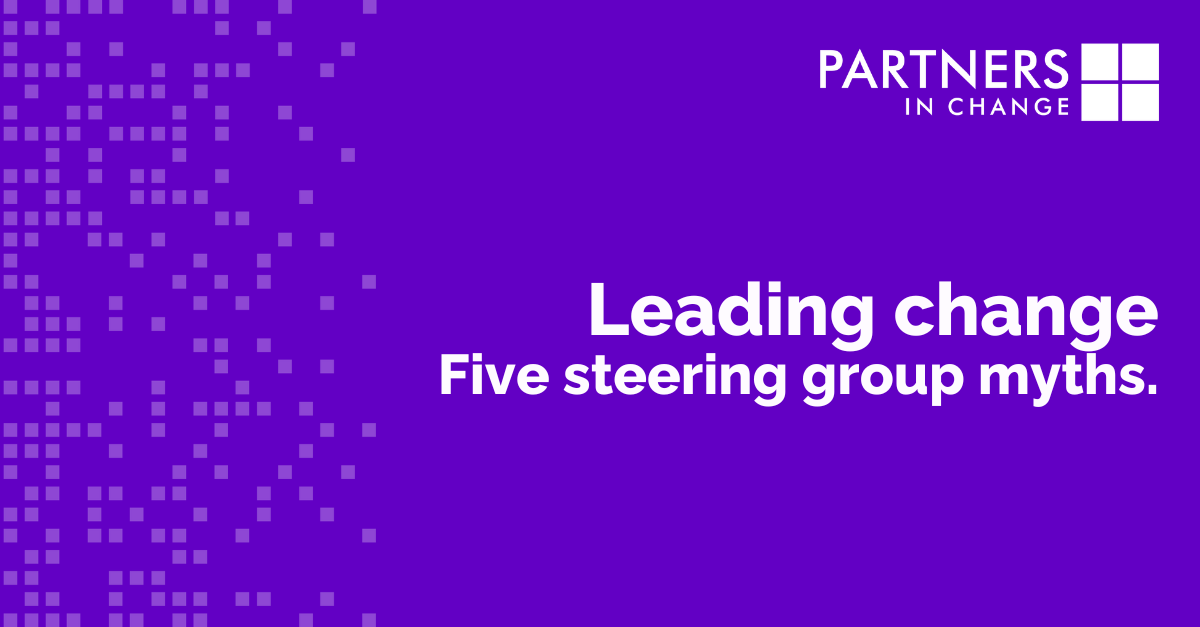
Every complex change or transformation programme demands a well governed and well executed steering group if it is to deliver effective, efficient and sustainable results.
Working at its best, a steering group should drive the change programme forward by removing blockers, resolving issues and mitigating risks. As a result, things are kept on track and under control.
Of course not every steering group is successful. We asked 70 experienced change professionals their views and they concluded that, overall, only 55% deliver what they should.
So why do almost half of steering groups fail? They fail for all sorts of reasons, but there are some common beliefs (or ‘myths’) we’ve come across over the years.
If some or all of the group’s attendees are guided by these ‘myths’ it’s likely to contribute to poor performance.
If you can dispel these myths head-on with all who sit on and attend your group, you will be better set for programme – and therefore personal – success. We’d strongly recommend reinforcing these points ahead of the first meeting and perhaps summarising them again as each new agenda is published.
Myth 1: A Steering Group is a communications forum
No it isn’t! It is a decision-making forum designed to facilitate and drive progress towards desired outcomes.
Myth 2: Steering Groups are monthly and last two hours
They might be this frequent and last that long but let the needs of your specific programme dictate the schedule and ensure your attendees commit to your desired frequency and duration based on your shared appraisal of the needs of the programme.
Myth 3: The more attendees, the better
This is never the case. Plan for the minimum number of attendees required to legitimately make the decisions on the agenda. As soon as a decision is attached to an agenda, ensure those key attendees know their attendance is vital for the programme to move forward.
Myth 4: Lots of large slide decks are needed
No they aren’t! They won’t be read. Only present the information that is needed for the decision to be made, presenting all the facts clearly.
Myth 5: The Programme Manager should be challenged hard
Sometimes they may need to be challenged but, more often, the support of the group is required. Successful change is borne out of collaboration and positivity – if the steering group becomes a trial, energy and enthusiasm will soon dissipate.
At PiC we’ve helped lead, govern and deliver many change and transformation programmes of all shapes and sizes. We see time and again that well managed, well prepared steering groups have a hugely positive effect on any change or transformation programme, helping programmes remain on-track and on budget.
Designing your steering group with the above ‘myths’ in mind will help set up your steering group for success. If you’d like more in-depth guidance on improving the effectiveness of your steering groups you can find a free-to-use diagnostic tool in the Toolbox section of our website.
No matter where you are on your change journey, we can help. Please don’t hesitate to get in touch if you’d like to talk to us about your change and transformation challenges.



Recent Posts